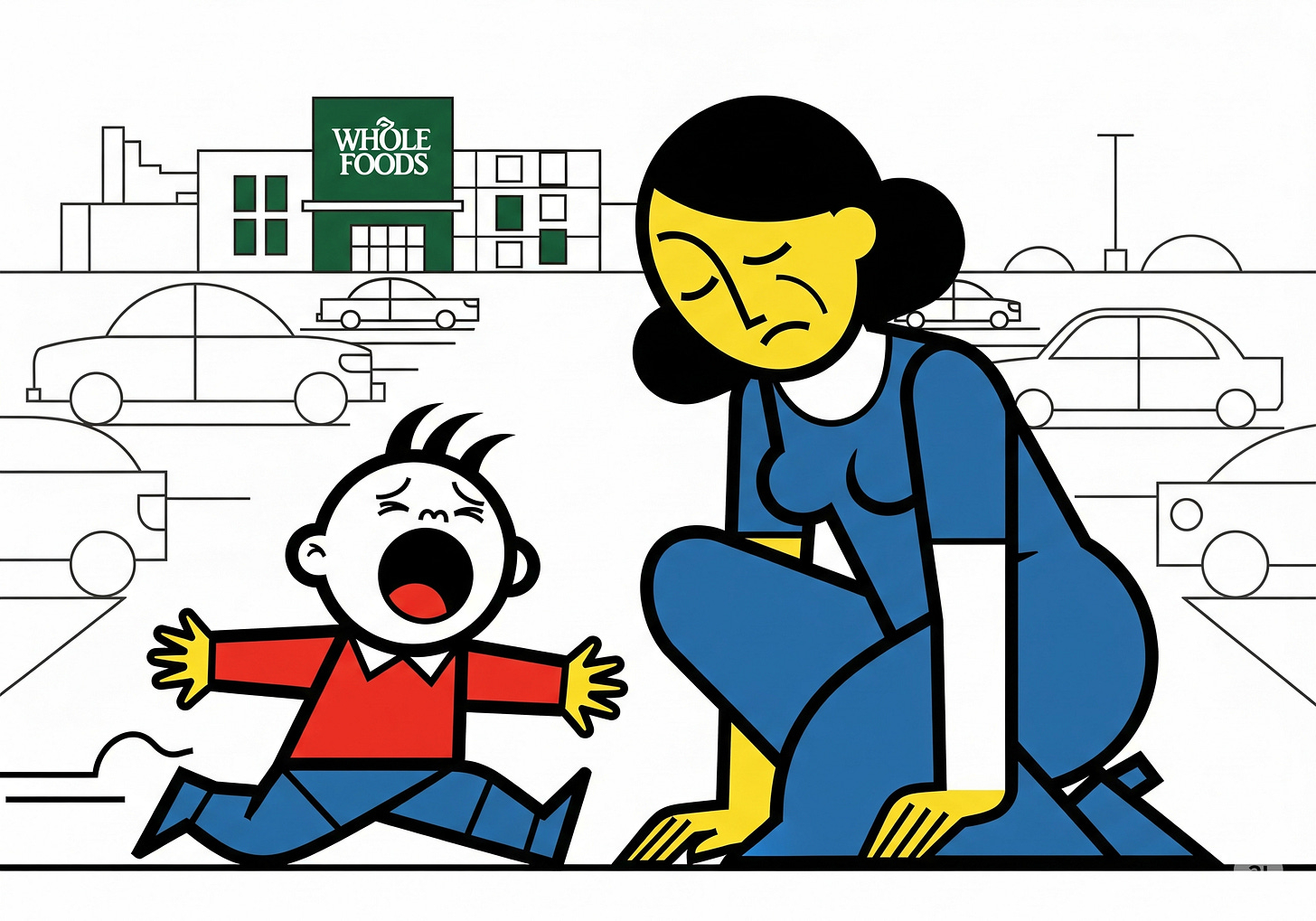Only the Comfortable Can Afford to Romanticize Children
Why Precarious Societies Raise Grown-Ups While We Raise TikTok Therapists
A child screams in a Whole Foods parking lot because the iPad timer ran out. The mom is crouched beside him, softly negotiating like she's brokering peace in the Middle East.
Meanwhile, in another part of the world, a 10-year-old girl is walking three kilometers to school while balancing her toddler brother on her hip.
Neither child is wrong. But only one is being treated like a fragile emotional oracle.
In unstable economies, children are not special snowflakes. They are contributors, dependents, and often, survival strategies. There’s no time for curated milestones or Pinterest-based parenting. The goal isn’t to optimize their inner world, it’s to help them survive this one.
But in the Global North? Children have become identity projects. Emotional centerpieces. Miniature gods with customized wardrobes and therapeutic vocabularies.
Because comfort breeds performance. And when parenting becomes a performance, children stop being people and start being proof.
A Global Snapshot: Childhood by Circumstance
In precarious societies:
- Children work, because everyone must.
- Respect is expected, not gently invited.
- Emotional expression is permitted, but not central.
- Parenting is distributed, pragmatic, and grounded in necessity.
Meanwhile, in materially stable cultures:
- Children are 'gifted.' 'Empaths.' 'Old souls.'
- Parents curate childhoods like they’re launching a boutique brand.
- Every meltdown is an opportunity for growth. Or optics. Or both.
The Role of Surplus in Parenting Neurosis
Comfort doesn’t just give us options, it gives us delusions. When your basic needs are met, you have the luxury to obsess over self-actualization through parenting. You also gain the illusion of control. Thus was born the modern myth of 'perfect parenting.'
Post-WWII suburbanization and consumerism turned parenting into a middle-class competition. Enter the mommy wars. Enter the performative Instagram reels. Enter the brand of gentle parenting that often erases boundaries in the name of validation.
Examples of Fragility vs Resilience
A Western teen has a panic attack because their university professor didn’t validate their feelings during office hours. Meanwhile, a teenager in a precarious economy is running a household while studying by flashlight.
Again: neither is wrong. But one is learning that the world doesn’t owe them emotional regulation, it demands they build it themselves.
Cultural Guilt Displacement
We don’t romanticize hardship when it happens to poor kids in developing countries. We romanticize it when our kids experience a minor inconvenience. A scraped knee. A spelling test. A bad birthday party.
Why? Because it allows us to play savior. Because comfort breeds fragility, and fragility makes parents feel necessary.
What Resilience Actually Looks Like
Resilience isn’t stoicism. It’s adaptability. Boundaries. Emotional regulation. A sense of self that doesn’t crumble under boredom, rejection, or discomfort.
Children in precarious contexts gain fragments of this through lived experience. Affluent children must be taught it intentionally. And yet, we teach them the opposite.
Love ≠ Indulgence
You can love your child without:
- Making them your reason for living
- Building them a curated identity
- Turning discomfort into a crisis
If you’re comfortable, your job isn’t to make life frictionless, it’s to build resilience within that comfort. Or else you’re just replacing hardship with neurosis.
Clean Your Own House First
It’s easy to judge strict or utilitarian parenting in other cultures. But look closer: their kids may lack comfort, but they’re often more adaptable, responsible, and emotionally grounded than their affluent counterparts.
Romanticizing childhood is a luxury. But that luxury has consequences. We’re raising kids with emotional language, and no internal structure.
Raise Adults, Not Brands
Your child is not your product. Not your mirror. Not your redemption arc.
They don’t need a curated experience. They need tools. Boundaries. Adaptation.
And the more comfort you have? The more responsible you are for giving them something real to stand on.
If you love your child, stop curating their fragility.
Give them tools, not scripts.
And stop performing parenting for other adults.


